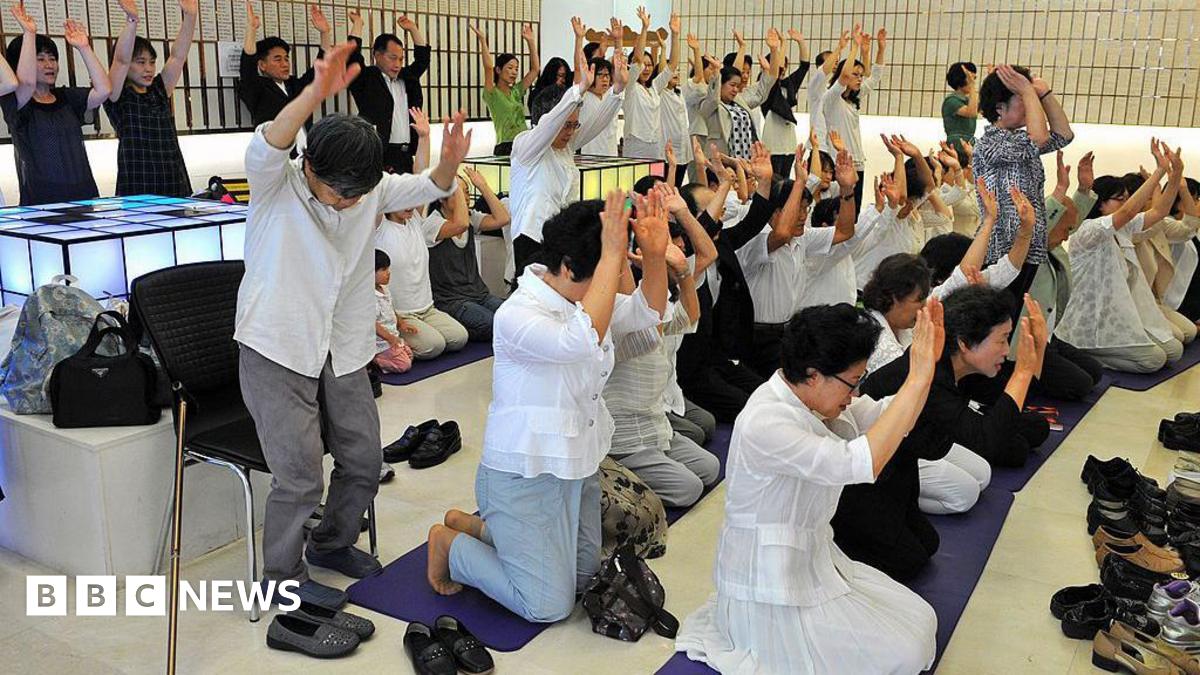Japanese Court Orders Unification Church to Disband
Editor’s Note: A Japanese court has ordered the controversial Unification Church to disband, marking a significant legal victory for victims of its alleged manipulative recruitment practices.
Why This Matters: The Unification Church's Demise and its Global Impact
The Tokyo District Court's decision to dissolve the Family Federation for World Peace and Unification – better known as the Unification Church – is a landmark ruling with far-reaching consequences. For decades, the Church, founded by the late Sun Myung Moon, has faced accusations of coercive recruitment, brainwashing, and financial exploitation. This ruling, based on the Civil Code's provision for dissolving organizations deemed to have violated public order, finally addresses the long-standing concerns of victims and critics. The impact extends beyond Japan, potentially influencing similar legal battles involving the Church globally and setting a precedent for holding religious organizations accountable for harmful practices. This case highlights the crucial interplay between religious freedom and the protection of vulnerable individuals from manipulative organizations. Keywords: Unification Church, Family Federation for World Peace and Unification, Sun Myung Moon, Japan, Court Ruling, Dissolution, Coercive Recruitment, Brainwashing, Financial Exploitation, Religious Freedom, Public Order.
Key Takeaways
| Point | Detail |
|---|---|
| Court Decision | Tokyo District Court ordered the Unification Church's dissolution. |
| Reason for Dissolution | Violation of public order due to coercive recruitment and harmful practices. |
| Impact on Victims | Provides potential legal recourse and a sense of justice for victims of the Church's alleged manipulative tactics. |
| Global Implications | Sets a precedent for holding religious organizations accountable globally. |
| Future Uncertainties | The Church may appeal the ruling, and the long-term impact on its affiliates remains to be seen. |
Unification Church Ordered to Disband: A Landmark Ruling
The Unification Church’s history is marred by controversy. Its unique practices, including mass weddings and aggressive fundraising, have attracted both fervent followers and vocal critics for years. The Court’s decision directly addresses claims of undue influence and manipulative recruitment, citing specific instances where individuals were allegedly pressured into making significant financial contributions. The ruling emphasizes the Church's systematic violation of public order, focusing on the detrimental effects on the lives and finances of its members.
Key Aspects of the Ruling
- Coercive Recruitment Tactics: The court extensively examined evidence detailing high-pressure recruitment strategies that exploited vulnerabilities in potential members.
- Financial Exploitation: Allegations of coercing significant donations and exploiting members' financial resources played a key role in the court's decision.
- Brainwashing Allegations: While not explicitly stated as the sole reason, the court considered evidence suggesting manipulative techniques employed to control members' beliefs and actions.
- Public Order Violation: The court ultimately concluded that the Church's actions violated Japan's public order laws, justifying its dissolution.
The Church's Response and Future Outlook
The Unification Church has yet to issue a comprehensive statement regarding the court's ruling. However, legal experts anticipate an appeal. The dissolution order does not automatically eliminate the Church's assets; the court will likely oversee the distribution of its holdings. The ruling's impact on the Church’s global network remains uncertain, though similar legal challenges are likely to emerge in other countries.
The Impact of the Ruling: Moving Forward
The court's decision acknowledges the suffering of countless individuals affected by the Unification Church’s actions. It underscores the importance of protecting vulnerable populations from manipulative organizations, irrespective of their religious affiliation. This ruling sends a clear message: religious freedom does not extend to practices that violate fundamental human rights and public order.
People Also Ask (NLP-Friendly Answers)
Q1: What is the Unification Church?
A: The Unification Church, officially the Family Federation for World Peace and Unification, is a controversial religious movement founded by Sun Myung Moon, known for its unique theology and practices.
Q2: Why is this court ruling important?
A: This ruling is significant because it holds a major religious organization accountable for allegedly harmful practices, potentially setting a precedent for similar cases globally.
Q3: How can this benefit victims of the Unification Church?
A: The ruling provides a pathway for redress and potentially facilitates the return of unfairly obtained funds, offering a measure of justice to victims.
Q4: What are the main challenges in addressing the Unification Church's actions?
A: Challenges include proving the extent of coercive practices, the Church's complex global structure, and potential legal battles surrounding its assets.
Q5: How will this impact the Unification Church's future?
A: The future is uncertain, depending on any appeals and the long-term implications of the court’s decision on the Church's global operations.
Practical Tips for Understanding the Unification Church Case
- Research the history: Understand the Unification Church's origins and key beliefs to gain context.
- Examine the court documents: Access publicly available documents to better comprehend the legal arguments.
- Follow news reports: Stay informed through reputable news sources for the latest updates.
- Support victim advocacy groups: Learn about organizations supporting victims and consider offering assistance.
- Discuss the ethical implications: Engage in thoughtful conversations about the balance between religious freedom and protection from harmful practices.
- Learn about similar cases: Research other instances where religious organizations have faced similar accusations.
Summary: The Tokyo District Court’s decision to dissolve the Unification Church represents a critical moment in the fight against manipulative religious organizations. This ruling highlights the importance of protecting vulnerable populations and underscores the need for accountability, even within religious contexts.
Closing Message: This landmark ruling compels us to reflect on the delicate balance between religious freedom and the safeguarding of individual rights. What implications does this decision have for the future of religious organizations globally?
Call to Action: Share this article to raise awareness about this crucial legal decision and its implications. Stay informed about future developments by subscribing to our newsletter for updates on this and related stories.

